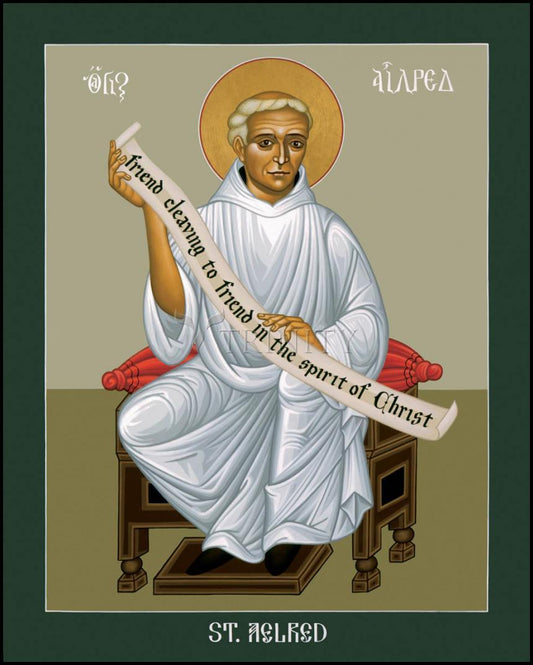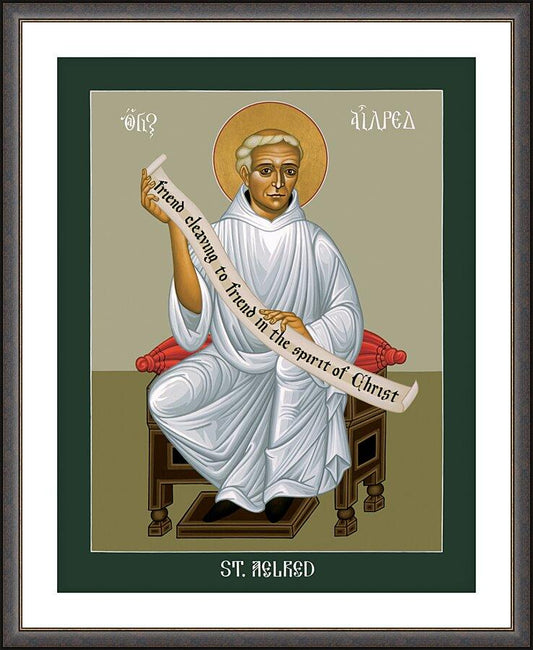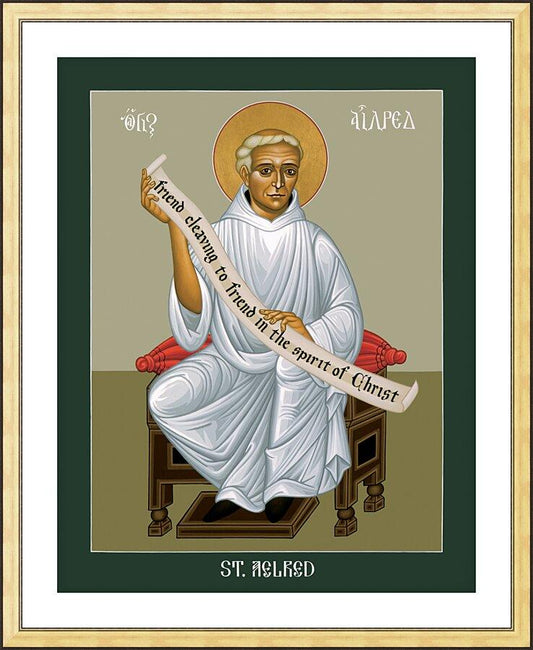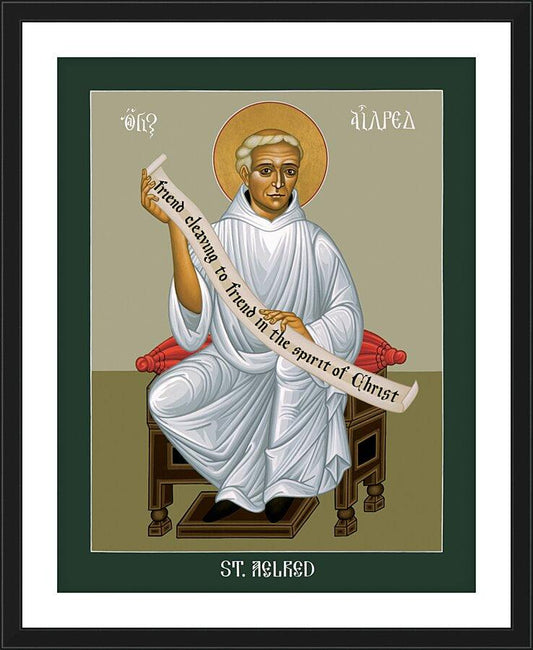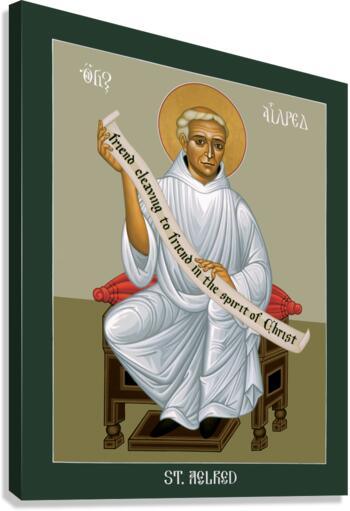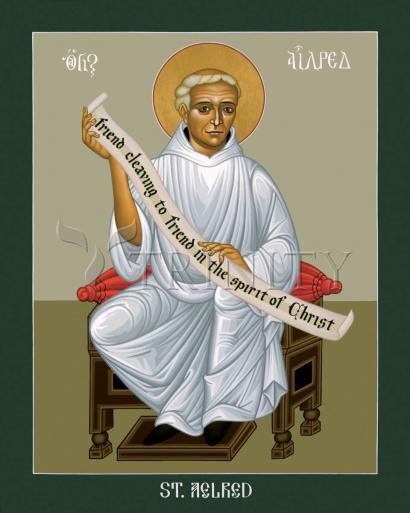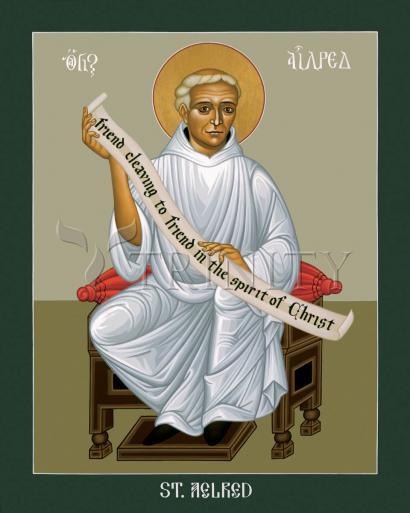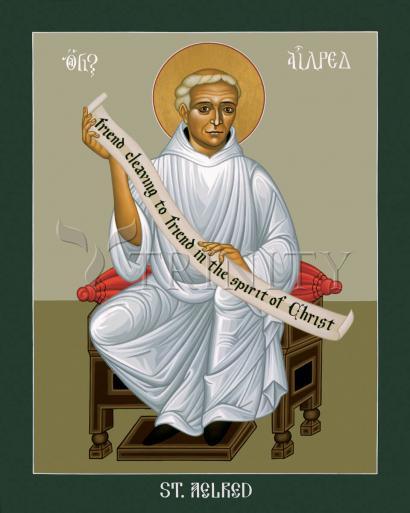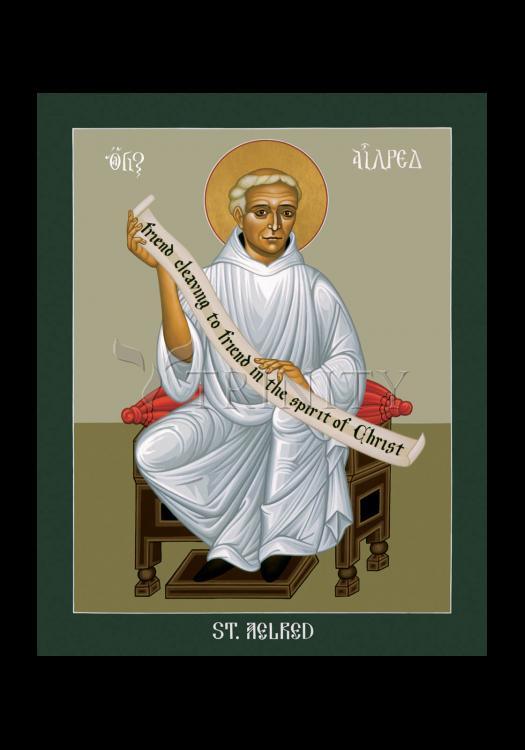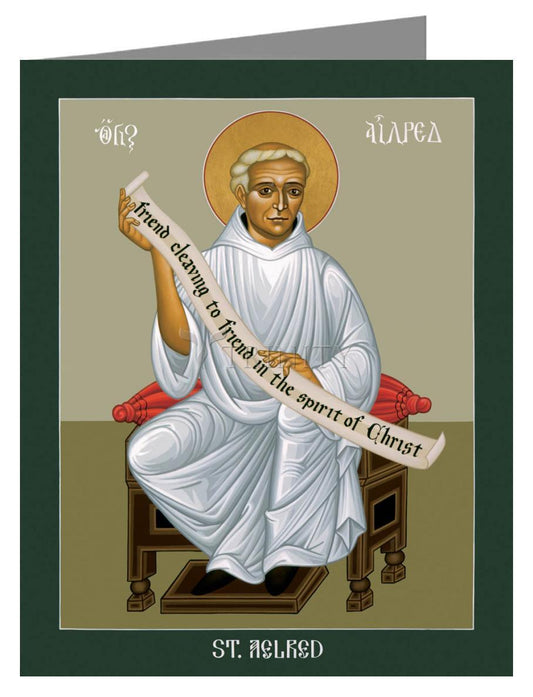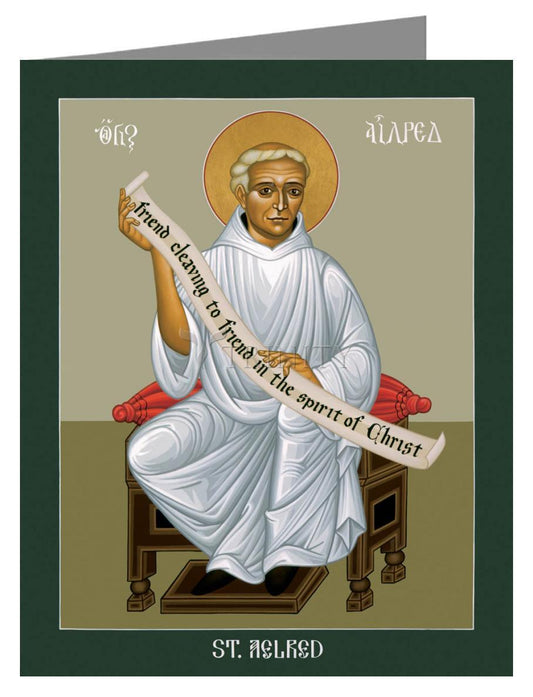Aelred was the son of Eilaf, a priest during a period when English priests were allowed to marry. He was the keeper of the shrine of Hexham. Aelred was the master of the household of the court of King David of Scotland. He was known for his gentle spirituality and his personal austerity amid the court life. King David wanted to make his friend a bishop, but instead Aelred left Scotland in 1134 to become a Cistercian monk at Rievaulx, Yorkshire, England. He was a first abbot of a Cistercian monastery in Revensby, Lincolnshire, England in 1142.
He became abbot of Rievaulx in 1147, which made him superior of all Cistercians in England, and kept him much on the road, travelling from house to house, preaching throughout England and Scotland. He was the peacemaker among the Picts in Galway, ending disputes and revitalizing the faith in the area. He composed sermons and prayers, wrote works on the spiritual and aescetic life, wrote on the lives of King David of Scotland and St. Edward the Confessor, and was considered a living saint by those who knew him.
Born: 1110 at Hexham, England
Died: January 12, 1167 at Rievaulx, Yorkshire, England of kidney disease
Canonized: 1191
Also known as: Aethelred, Ailred, English Saint Bernard, Ethelred
Readings:
One who speaks the word of God to others ought not aim at vaunting his own knowledge but at discerning how he can build up his hearers. And with a motherly compassion for weaker minds he ought, I might say, prattle to them, descending to the use of baby talk. But the limit of my gifts make it necessary that my hearers stoop down to the poverty of my words.
"Saint Aelred
How I savor it when I see the Lord of all majesty showing himself as far as bodily exertion and human emotion are concerned not like the strong but the weak. What a comfort it is to me in my weakness! Truly this weakness of my Lord without doubt brings me strength and stability in my weakness... I am entrusted with the care of my brother's body and soul (for I do not love the whole man if I neglect anything belonging to either -- for it is very difficult for the mind not to be tempted when the flesh has too much to suffer). If I see him in distress, whether it be on account of the austerity of the food or because of work or the vigils -- if, I say, I see that he is tormented in body and tempted in spirit, if I see him in such affliction and... do not on occasion accommodate myself to the infirmities of the weak I am not running in the fragrance of Christ's ointments but with the harshness of the pharisees.
"Saint Aelred




